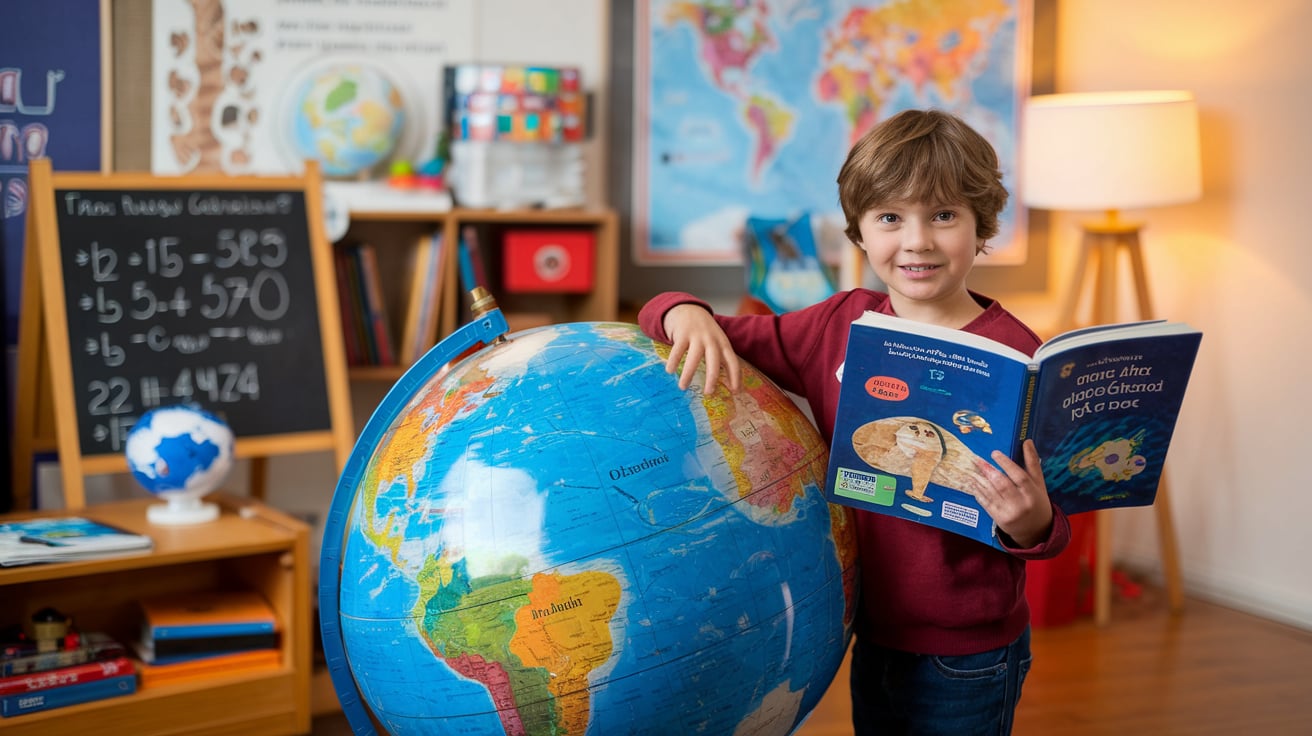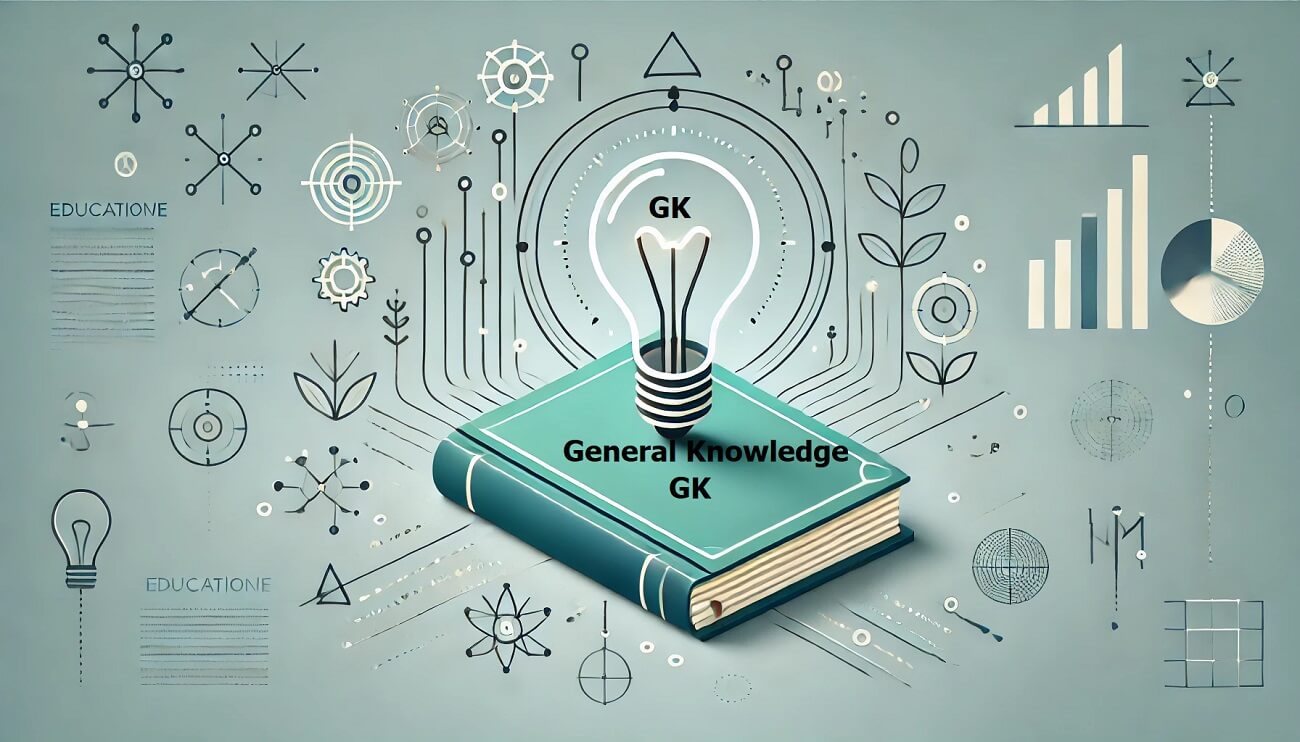
Impact of GK & Awareness on a Child's Growth
Have you ever noticed how some children can ask questions that leave adults speechless? This curiosity isn't just cute; it's the foundation for a lifetime of learning. General knowledge (GK) and awareness shape how children think, learn, and interact with the world.
As parents and educators, fostering these skills isn't just about helping kids excel academically but equipping them to navigate life with confidence and understanding.
In this article, we explore how GK impacts a child's growth—cognitively, socially, and emotionally. You'll find practical tips to nurture awareness at home and school alongside real-life examples and actionable strategies.
What is General Knowledge (GK), and Why is It Essential?

General knowledge refers to a broad understanding of diverse topics such as history, geography, science, culture, and current events. It is the foundation upon which children develop their intellectual, social, and emotional abilities. By fostering a wide-ranging awareness, general knowledge empowers children in several ways:
Building Connections:
General knowledge allows children to see the bigger picture, connecting seemingly unrelated subjects. For example, understanding geography can enhance comprehension of history by providing context about how physical landscapes influenced cultural development or historical events.
Enhancing Problem-Solving Skills:
Children with knowledge across multiple domains can approach challenges with a multidimensional perspective. For example, a child learning about ecosystems can better analyze environmental issues, applying lessons from science, ethics, and geography.
Developing Perspective:
General knowledge fosters empathy and critical thinking by exposing children to diverse cultures, histories, and worldviews. Awareness of global events encourages them to think beyond their immediate surroundings, developing an understanding of others' experiences and challenges.
Scientific evidence underscores the importance of general knowledge in early development. According to the American Academy of Pediatrics, exposure to general knowledge significantly enhances early literacy and math skills, essential components of school readiness.
A landmark Harvard University study also found that children who engage in GK-related activities—such as reading or interactive discussions—demonstrate enhanced cognitive stimulation, contributing to better academic performance as they grow.
In essence, general knowledge is not just a collection of facts; it's a tool that helps children make sense of the world, build critical skills, and develop a well-rounded perspective that prepares them for future success.
The Cognitive Benefits of General Knowledge

Improved Critical Thinking
Critical thinking is one of the most significant cognitive benefits of GK. A child with a strong foundation in GK can evaluate information, identify patterns, and draw logical conclusions. These abilities empower them to solve problems effectively and ask thoughtful questions.
For instance, understanding basic scientific principles can lead a child to inquire about the causes of natural phenomena.
If children learn about the water cycle, they might ask how pollution impacts rainfall or clean water supplies. This process deepens their understanding of science and helps them think analytically about real-world issues.
Critical thinking skills cultivated through GK extend far beyond academics. They prepare children to make informed decisions in everyday life, fostering independence and resilience. For example, a child who understands financial basics will be better equipped to manage allowances or savings, setting the stage for lifelong financial literacy.
Memory and Retention
Memory and retention are closely linked to how often children engage in GK-related activities. Repetition through storytelling, quizzes, or educational games allows children to absorb and recall information more effectively.
For example, a parent reading a story about ancient Egypt might find their child fascinated by pyramids, prompting the child to remember details like their construction or cultural significance. Over time, such interactions enhance cognitive pathways, making it easier for children to retain new information.
A National Institute of Education study found that children engaged in daily GK activities like quizzes or educational storytelling demonstrated 25% higher memory retention than those who did not. This evidence underscores the value of integrating GK activities into a child's routine through playful interaction or structured learning.
Enhanced Academic Performance
A broad knowledge base significantly impacts children's school performance. Subjects like social studies or environmental science become less intimidating when children already possess foundational knowledge about related topics. For instance, a child who knows basic facts about ecosystems will find lessons on biodiversity or conservation more relatable.
This advantage also applies across disciplines. GK supports interdisciplinary learning, connecting subjects like history and geography.
For example, understanding the geography of Europe can make historical lessons about World War II more comprehensible. Teachers often find that students with better general knowledge grasp complex ideas more quickly, which boosts confidence and participation in class discussions.
Social and Emotional Growth Through Awareness
Improved Communication Skills
General knowledge enhances a child's ability to communicate effectively. Knowing about various topics gives children the confidence to engage in meaningful conversations. This could be as simple as sharing a fun fact about space with friends or contributing to a class discussion on global warming.
Strong communication skills foster relationships, as they help children articulate their thoughts clearly and confidently. Over time, these abilities translate into leadership qualities, enabling children to guide group projects or mediate conflicts among peers.
Empathy and Understanding
General knowledge helps children connect with people from diverse backgrounds by teaching them about global cultures, historical events, and social challenges.
For example, learning about the struggles faced by endangered species can foster empathy toward animals and the environment. Similarly, understanding other cultures—through stories, documentaries, or festivals—encourages respect for diversity.
A child learning about global poverty through a school project might feel inspired to participate in a community service initiative, such as a food drive. This awareness shapes their worldview and nurtures a sense of responsibility toward others.
Confidence Boost
Children with GK are often more confident in both academic and social settings. They will likely volunteer answers in class, take leadership roles in group activities, and articulate their thoughts during debates or discussions. This confidence, rooted in awareness and understanding, often extends to extracurricular achievements, such as performing well in quiz competitions or science fairs.
The confidence gained through GK also prepares children for future challenges. A well-informed child who knows about global climate change can confidently participate in discussions or even lead initiatives to address such concerns.
Strategies to Foster General Knowledge in Children
Create a Culture of Curiosity
Encourage children to ask questions and explore their interests. For instance, if your child asks why leaves change color in autumn, take the opportunity to discuss photosynthesis and seasonal changes. These small, everyday conversations can spark a lifelong love for learning.
Incorporate Learning into Daily Life
Integrating GK into daily routines can make learning feel natural. For example, you can discuss interesting news articles during breakfast or point out constellations during an evening walk. Family outings to museums, parks, or cultural landmarks can provide hands-on learning experiences.
Leverage Technology Wisely
While screen time should be balanced, educational apps like National Geographic Kids or Khan Academy Kids can make learning engaging and interactive. These tools combine visual, auditory, and tactile elements, catering to different learning styles.
Storytelling and Reading
Storytelling and reading are timeless methods for imparting knowledge. Books about explorers, inventors, or historical events can ignite curiosity while building comprehension. Parents can also use storytelling to teach moral lessons or cultural values, reinforcing emotional intelligence alongside GK.
Interactive Games and Quizzes
Games like trivia, crossword puzzles, or scavenger hunts can make learning fun and competitive. For instance, hosting a weekly family quiz night on various topics can encourage children to explore new subjects while bonding with family members.
The Role of Schools in Building General Knowledge
Educational institutions are instrumental in cultivating GK through structured curriculums and extracurricular activities.
Interdisciplinary Learning
Schools can integrate GK into multiple subjects by highlighting connections between disciplines. For example, a history lesson on trade routes might incorporate geography and economics. This approach makes learning holistic and memorable.
Extracurricular Activities
Debates, quizzes, and collaborative projects foster teamwork and expand knowledge. According to the National Education Association, schools emphasizing GK activities report a 30% increase in student engagement.
Collaborative Learning
Group activities allow students to share knowledge, broadening their understanding through peer interaction. This collaborative environment also builds critical social skills, preparing children for teamwork in future academic or professional settings.
Challenges in Developing General Knowledge
While the benefits of GK are undeniable, certain challenges need addressing:
-
Providing too much information at once can overwhelm children. Focusing on quality and pacing the learning process ensures better retention.
-
Introducing a variety of topics without delving deeply can dilute learning. Striking a balance helps maintain engagement while ensuring comprehension.
-
Not all families have equal access to resources. Libraries, community programs, and free online platforms can bridge this gap.
Real-Life Impact: Stories from Parents
Rojina, a mother of two, recalls how nurturing her son's curiosity changed his trajectory. "When my son started asking questions about space, we bought him a telescope. That small investment opened his eyes to astronomy, and now he dreams of becoming an astrophysicist. Encouraging his interests showed us how powerful curiosity can be."
Conclusion
General knowledge and awareness form the backbone of a child’s growth. They enhance cognitive abilities, foster social and emotional intelligence, and prepare children for a lifetime of learning. As parents and educators, your role is pivotal in creating opportunities for children to explore, question, and discover.
Start small. Encourage curiosity, integrate learning into daily routines, and watch their understanding of the world and their confidence grow.
Frequently Asked Questions (FAQs)
How can I improve my child's general knowledge?
Please encourage them to read, explore educational apps, and converse about current events or interesting topics.
What activities promote curiosity in children?
Storytelling, visiting museums, playing trivia games, and conducting simple science experiments are excellent options.
How does general knowledge benefit a child's future?
It fosters critical thinking, empathy, and communication skills, all essential for personal and professional success.
Can GK be taught at an early age?
Absolutely! Early exposure helps develop a child's cognitive abilities and sets the foundation for lifelong learning.
What role do schools play in fostering GK?
Schools provide structured learning, collaborative activities, and exposure to diverse subjects, all enhancing general knowledge.
Also Read:
| Why Is General Knowledge (GK) Important for Students? Benefits Explained |





